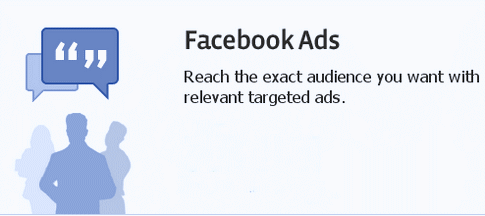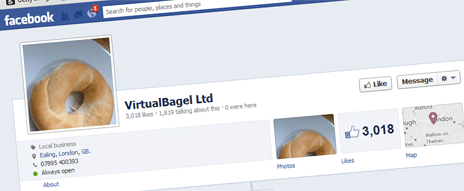Are Facebook's Paid Likes Actually Fake Likes?
Whenever you visit a Facebook page, most of us tend to gauge the popularity of the page by the number of likes. Well, it turns out the ‘likes’ may be deceiving you. BBC News conducted an <a href="https://www.bbc.co.uk/news/technology-18813237" target="_blank" rel="nofollow noopener noreferrer">Facebook 'likes' and adverts' value doubted - BBC News</a> and suggested that, the ‘likes’ gained by using #-Link-Snipped-# are from users who have no interest in the page. Many of the account holders who have liked the link have lied about their personal details or have appeared to be fake.

The investigation was conducted by a BBC correspondent #-Link-Snipped-#. He performed an experiment by setting up a Facebook page for his imaginary business, #-Link-Snipped-# and used Facebook Ads to advertise his page. In Facebook Ads, a target audience can be selected so that the page can be promoted to people who would be interested in your page. So, when asked Mr. Jones chose US, UK, India, Egypt, Indonesia, Malaysia and the Philippines as the places he wanted his ad to be seen. Within 24 hours after creating the advert, he received 1,600 likes on his meaningless site. VirtualBagel got the highest number of likes from Egypt, Indonesia and Philippines. He also noticed that the people who liked his page had profiles which appeared fake. Not only were the profiles fake, but the 'person' actually liked more than 3,000 pages on Facebook. When Mr. Jones narrowed down the number of countries he was targeting to promote his page to just two i.e. US and UK, the new 'likes' slowed down drastically.

A similar experiment was done by Derek Muller, creator of the YouTube channel, <a href="https://www.youtube.com/user/1veritasium/about" target="_blank" rel="nofollow noopener noreferrer">Veritasium - YouTube</a>. He promoted his own Facebook page, #-Link-Snipped-# using Facebook Ads. After receiving 70,000 more likes, he realized that his posts on his Facebook page were still not getting more engagement as one would expect. Simply pointing to the fact that the 'likes' Mr. Muller received were from people who weren't actually interested in his page. He also created a Facebook page by the name, #-Link-Snipped-#. And even as description specifies that "only an idiot would like this page", he still managed to get 3,000+ likes on his page. Mr. Derek pointed out to the fact that Facebook Ads provided services similar to click farms like <a href="https://boostlikes.com/" target="_blank" rel="nofollow noopener noreferrer">Buy Facebook Likes and Followers | Boostlikes.com</a>. Watch his YouTube video explaining his experiment in brief.
This brings out the question, Is "Facebook Ads" a big, fat fraud?
Source: <a href="https://www.bbc.co.uk/news/technology-18813237" target="_blank" rel="nofollow noopener noreferrer">Facebook 'likes' and adverts' value doubted - BBC News</a>


A similar experiment was done by Derek Muller, creator of the YouTube channel, <a href="https://www.youtube.com/user/1veritasium/about" target="_blank" rel="nofollow noopener noreferrer">Veritasium - YouTube</a>. He promoted his own Facebook page, #-Link-Snipped-# using Facebook Ads. After receiving 70,000 more likes, he realized that his posts on his Facebook page were still not getting more engagement as one would expect. Simply pointing to the fact that the 'likes' Mr. Muller received were from people who weren't actually interested in his page. He also created a Facebook page by the name, #-Link-Snipped-#. And even as description specifies that "only an idiot would like this page", he still managed to get 3,000+ likes on his page. Mr. Derek pointed out to the fact that Facebook Ads provided services similar to click farms like <a href="https://boostlikes.com/" target="_blank" rel="nofollow noopener noreferrer">Buy Facebook Likes and Followers | Boostlikes.com</a>. Watch his YouTube video explaining his experiment in brief.
Source: <a href="https://www.bbc.co.uk/news/technology-18813237" target="_blank" rel="nofollow noopener noreferrer">Facebook 'likes' and adverts' value doubted - BBC News</a>
0
